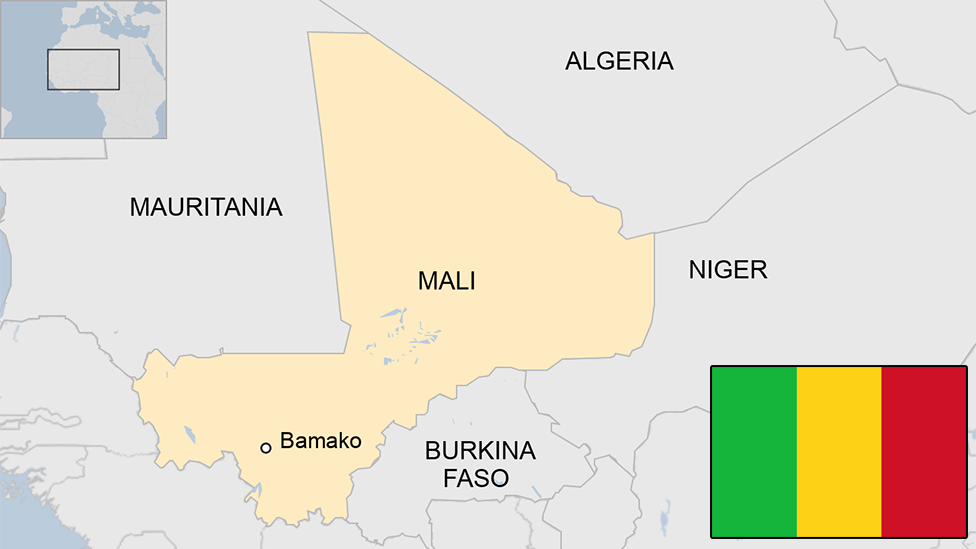Mali clashes displace nearly 130,000, UN warns
- Published
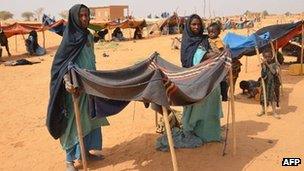
The refugee crisis was triggered by fighting between troops and rebels which erupted in mid-January
Nearly 130,000 people have been displaced by fighting between Tuareg rebels and government forces since mid-January in Mali, the UN has warned.
The clashes had displaced an estimated 60,000 people inside Mali, and a further 69,000 had fled to neighbouring countries, a spokesman told the BBC.
Adrian Edwards warned that basic supplies were urgently needed, as those displaced "don't have anything".
Dozens are feared to have died, but independent information is scarce.
The Azawad National Liberation Movement (MNLA), which wants independence for the northern region of Mali, took up arms last month and has launched attacks on northern towns and army bases.
It came after many Tuareg fighters returned from Libya, where they had fought alongside Col Muammar Gaddafi's forces.
Rights groups have urged the government, meanwhile, not to bomb civilians.
The resurgence in fighting follows two years of relative peace between the government and the Tuareg.
'Critical' needs
"Over a space of a few weeks we have seen literally tens of thousands of people being displaced to at least four countries surrounding Mali, plus smaller numbers in Togo, Guinea as well," Mr Edwards said.
He said there were an estimated 60,000 inside Mali, as well as some 29,000 in Niger, 22,000 in Mauritania and 18,000 in Burkina Faso.
The estimated 130,000 people displaced by the fighting is about 0.8% of the entire Malian population, which was estimated at 15.8m in 2011 - and a far greater proportion of the harsh, arid north part of the country.
Mr Edwards warned that there were "quite critical" needs for basic supplies - including shelter, food, water and medicines.
As well as that, many displaced were in a region chronically affected by food insecurity already, he said.
Zaharatha Ahmed, who has fled to Niger from Sanka village in Mali, told the BBC she had run away with her children as they were afraid the rebels would kill them.
"Everyone was running away," she said.
"People told us that there was fighting and that it wasn't safe. The owner of the animals we were looking after came and took the animals back. So we had nothing. So we came here."
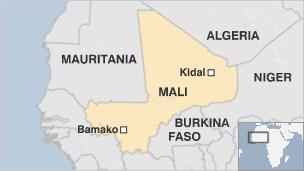
Moussa Jibou said he had fled Menaka in the north-east of Mali.
"It's the first time I saw anything like this in Menaka," he said.
"It's very sad to leave everything there. We left our clothes, our animals, even our beds. We have nothing here. It was a question of saving our lives so we had to come."
On Wednesday, a small girl was killed and several others - all women and children - were injured when Mali's air force bombed a refugee camp in the north of the country, aid group Medecins Sans Frontieres said on Thursday.
That prompted statements from both MSF and Amnesty International urging the Malian government not to attack civilian populations.
The government denies targeting civilians, and instead accuses the rebels of collaborating with al-Qaeda and killing captured soldiers.
- Published18 February 2012
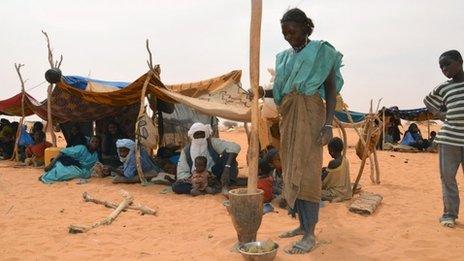
- Published7 February 2012
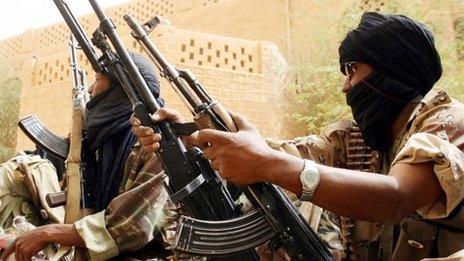
- Published2 February 2012

- Published17 October 2011
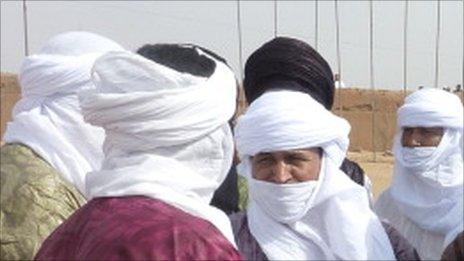
- Published18 September 2011
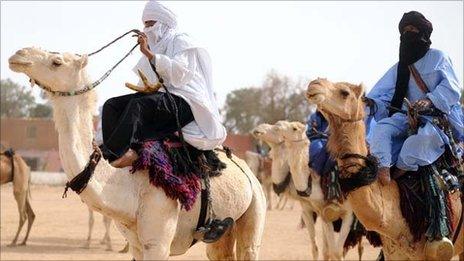
- Published4 March 2011
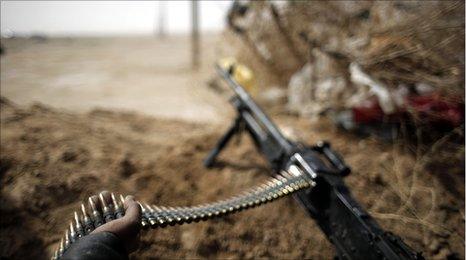
- Published28 July 2023
